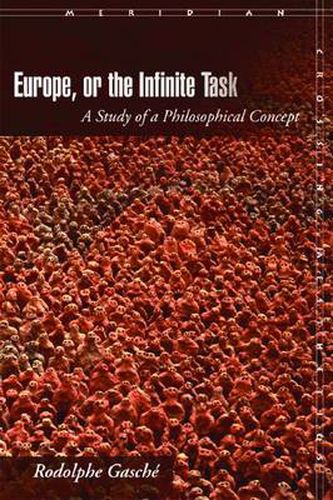Readings Newsletter
Become a Readings Member to make your shopping experience even easier.
Sign in or sign up for free!
You’re not far away from qualifying for FREE standard shipping within Australia
You’ve qualified for FREE standard shipping within Australia
The cart is loading…






What exactly does Europe mean for philosophy today? Putting aside both Eurocentrism and anti-Eurocentrism, Gasche returns to the old name Europe to examine it as a concept or idea in the work of four philosophers from the phenomenological tradition: Husserl, Heidegger, Patocka, and Derrida. Beginning with Husserl, the idea of Europe became central to such issues as rationality, universality, openness to the other, and responsibility. Europe, or The Infinite Task tracks the changes these issues have undergone in phenomenology in order to investigate Europe’s continuing potential for critical and enlightened resistance in a world that is progressively becoming dominated by the mono-perspectivism of global market economics. Rather than giving up on the idea of Europe as an anachronism, Gasche aims to show that it still has philosophical legs.
$9.00 standard shipping within Australia
FREE standard shipping within Australia for orders over $100.00
Express & International shipping calculated at checkout
Stock availability can be subject to change without notice. We recommend calling the shop or contacting our online team to check availability of low stock items. Please see our Shopping Online page for more details.
What exactly does Europe mean for philosophy today? Putting aside both Eurocentrism and anti-Eurocentrism, Gasche returns to the old name Europe to examine it as a concept or idea in the work of four philosophers from the phenomenological tradition: Husserl, Heidegger, Patocka, and Derrida. Beginning with Husserl, the idea of Europe became central to such issues as rationality, universality, openness to the other, and responsibility. Europe, or The Infinite Task tracks the changes these issues have undergone in phenomenology in order to investigate Europe’s continuing potential for critical and enlightened resistance in a world that is progressively becoming dominated by the mono-perspectivism of global market economics. Rather than giving up on the idea of Europe as an anachronism, Gasche aims to show that it still has philosophical legs.